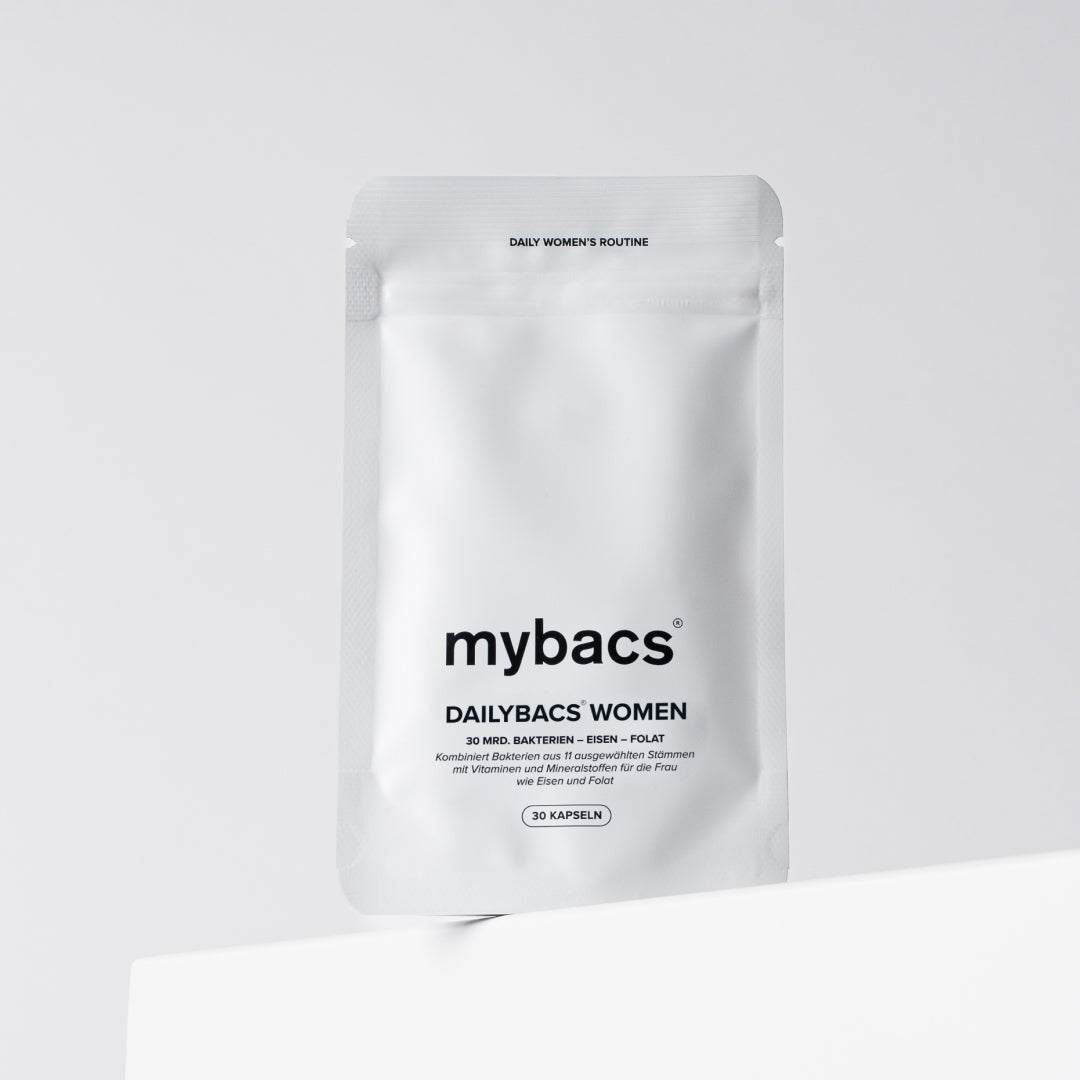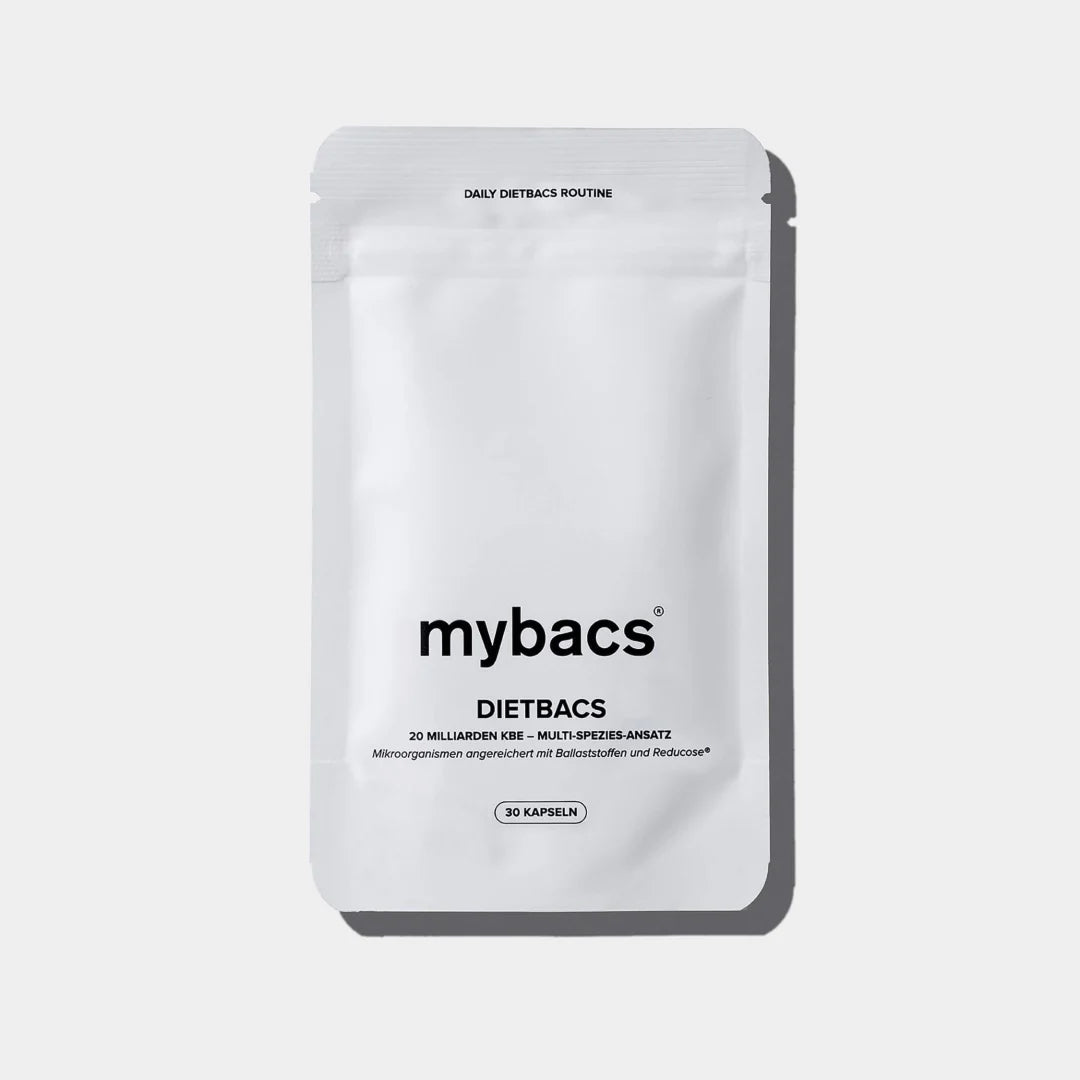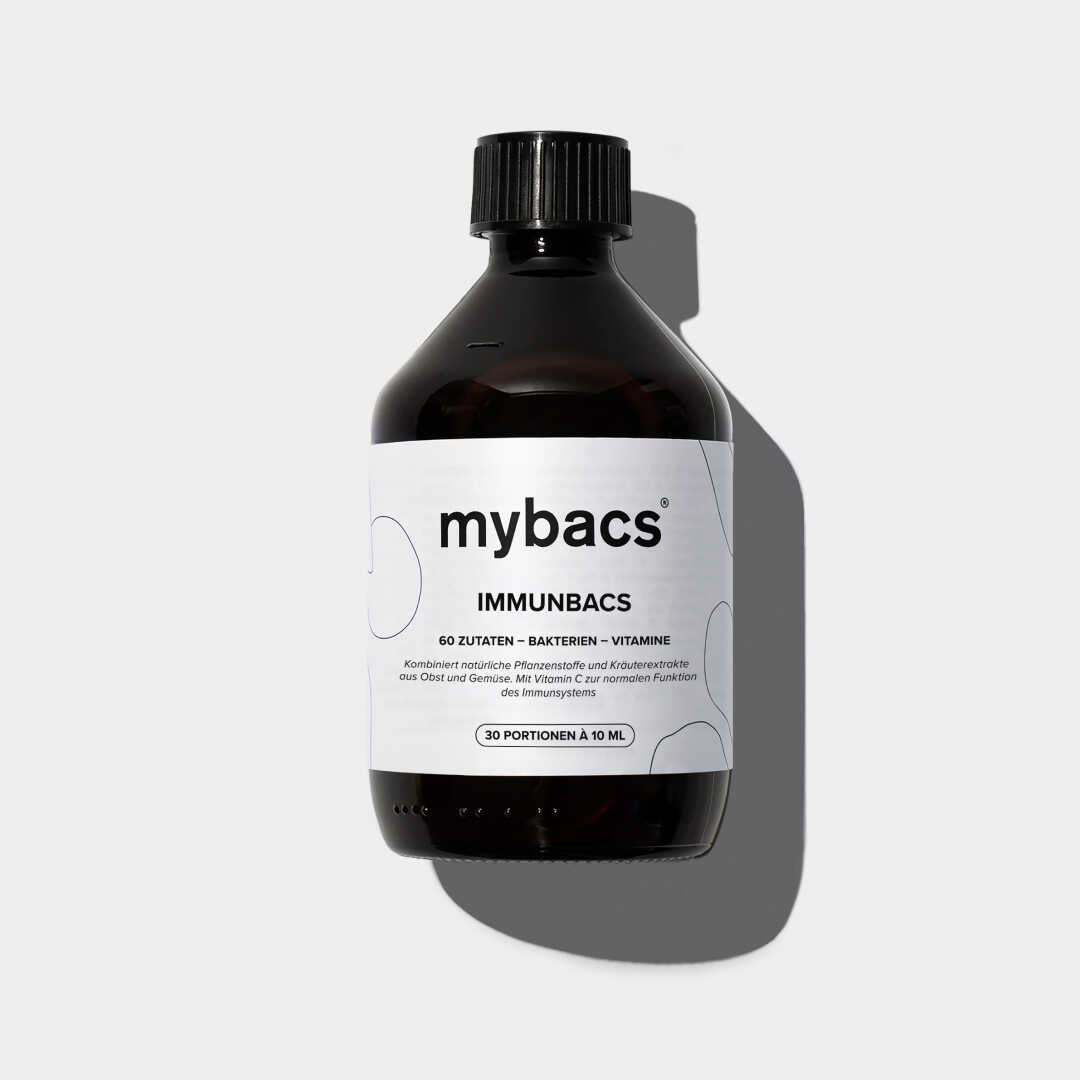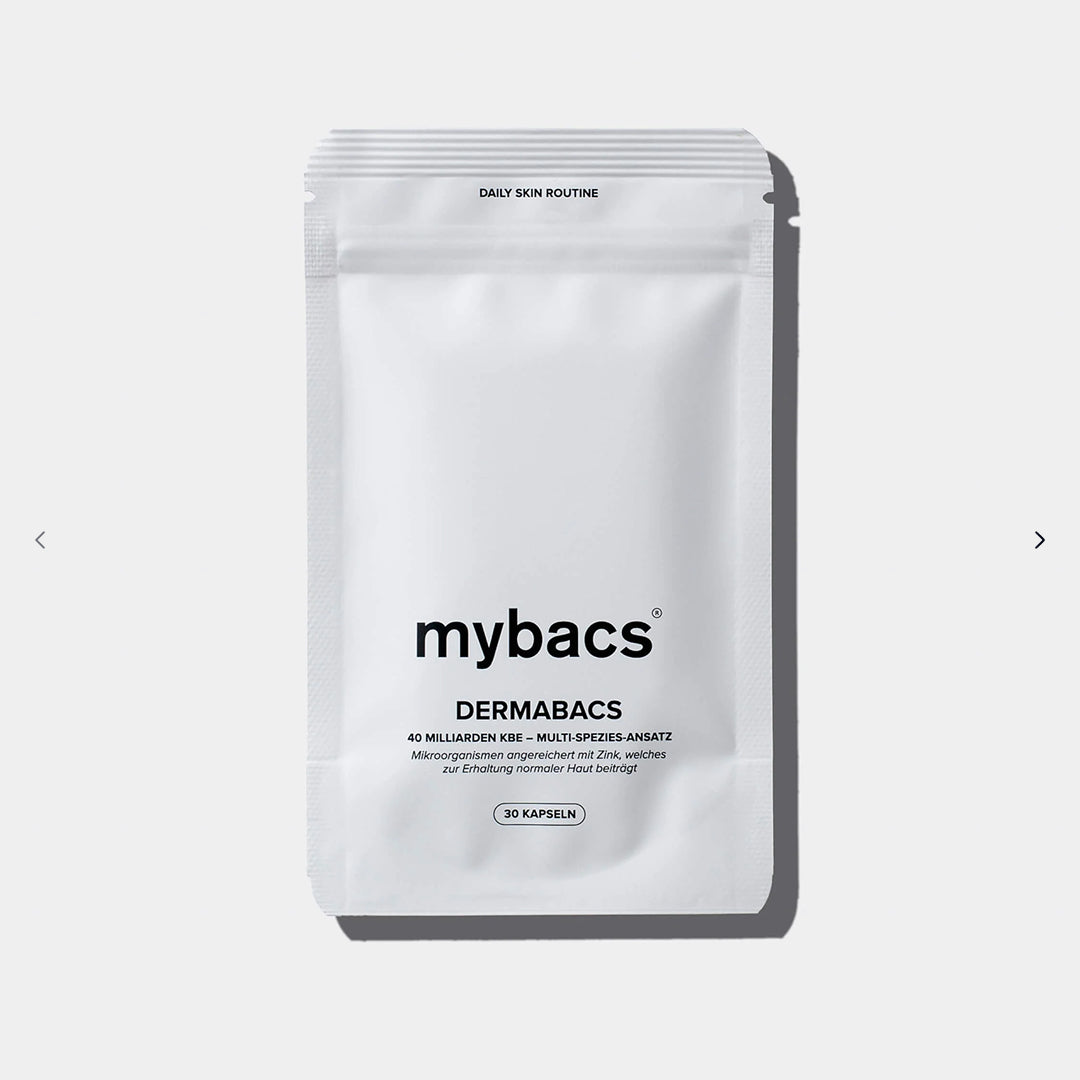This condition is becoming increasingly common these days and is causing serious problems for around 14 million Germans. But what exactly is irritable bowel syndrome (IBS)? How can this condition be treated? And how exactly is it all related to the intestinal flora? You'll learn all about it in this blog post.
1. What is irritable bowel syndrome?
Irritable bowel syndrome (IBS) is a disease of the digestive tract—more specifically, a dysfunction of the intestines. This is usually associated with an unhealthy intestinal flora. This results in a series of symptoms, such as: flatulence, abdominal pain, and diarrhea. Compared to healthy people, certain harmful or disruptive bacterial strains are more prevalent in the intestines.
Irritable bowel syndrome occurs about twice as often in women as in men. The current state of gastroenterological research does not yet clearly explain why this is the case. In general, the exact causes of this condition are still relatively unclear. However, connections between food intolerances, infections, and even stress have been scientifically proven. Today, scientists increasingly believe that there is not just one, but several "irritable bowel syndromes." This is because researchers have now identified various subtypes that differ primarily in the symptoms or complaints they cause. In addition, scientists believe that irritable bowel syndrome can be caused by interactions between the brain, the psyche, and the gastrointestinal tract. This occurs via the Gut-brain axisThis is because the central and enteric nervous systems communicate closely via nerves, neurotransmitters, and hormones.
Experts now suspect that the intestinal nervous system—also known as the gut brain—is overactive in people suffering from irritable bowel syndrome. This can cause digestive tract discomfort and potentially affect the psyche. Some studies have scientifically proven that irritable bowel syndrome is often associated with depression, chronic stress, emotional trauma, and anxiety disorders. However, this condition cannot generally be described as a psychological disorder.
2. What are typical symptoms of irritable bowel syndrome?
An estimated four to ten percent of all Germans suffer from recurring diarrhea, abdominal cramps, constipation, or flatulence. The still-unexplained causes of this condition make treatment difficult and often unsatisfactory. The symptoms are incredibly diverse and usually occur in combination. These include nausea, heartburn, flatulence, abdominal pain, diarrhea, or constipation.
3. What causes this intestinal disease?
Now comes some bad news: Irritable bowel syndrome can have a variety of causes and has only been studied for about 10 years, which is a very short time from a scientific perspective. Accordingly, there is relatively little information available about this condition.
If symptoms such as frequent diarrhea, bloating, or abdominal pain occur, the affected person usually first goes to their family doctor. If the doctor is unsure of what to do, they will refer you to a specialist in the field—an internist or gastroenterologist. They will then typically perform a gastrointestinal endoscopy or an ultrasound.But even here, doctors usually can't find an answer to all these problems, because irritable bowel syndrome (IBS) varies greatly and can manifest itself in a variety of ways. We've listed some important factors that can influence the onset of IBS:
- NutritionIt's well known that diet can have a significant impact on our health. It also plays a key role in the onset of irritable bowel syndrome. Patients with irritable bowel syndrome often report a connection between certain foods and reduced well-being. These foods typically involve certain carbohydrates, sugar alcohols, and sugars such as lactose or fructose. Gluten, gluten proteins, and other substances found in wheat can also cause problems.
- geneticsStudies show that people suffering from irritable bowel syndrome (IBS) usually have genetic mutations. This appears to be due to altered numbers or structures of receptor molecules. These molecules are located in the intestinal cell wall. This, in turn, impairs the transmission of stimuli in the intestine, resulting in overstimulation of the digestive tract.
- intestinal floraResearchers have discovered that the composition of the intestinal microbiome and intestinal flora is altered in patients with irritable bowel syndrome compared to healthy individuals. This is reflected in the fact that, on the one hand, certain strains of bacteria occur more frequently. On the other hand, the number of bacterial species present is usually reduced. The use of antibiotics, the influence of chronic stress and gastrointestinal infections also have a strong negative impact on the composition of the intestinal microbiome and thus also intestinal health.
- InflammationsChronic, underlying inflammation of the intestinal mucosa can be one of the causes of irritable bowel syndrome. This is most commonly seen in patients who suffer from frequent diarrhea.
- Bowel movements: Normally, the situation in a healthy intestine looks like this: the intestine moves regularly and rhythmically. But the intestine does not make these movements without a reason. No, it does so to move the intestinal contents, i.e. pre-digested food, and thus transport it through the body. However, if the intestine is not healthy, this can result in intestinal movements changing, slowing down significantly or speeding up significantly. If the intestine moves significantly more slowly, this can lead to constipation. If the muscles move faster than average, this has the opposite effect. You can probably guess - the result is a very unpleasant symptom: diarrhea. In addition, cramps in the intestinal tract can lead to severe and unpleasant abdominal pain.
One thing is certain: There are many different factors that influence the likelihood of developing the disease. Patients with irritable bowel syndrome need patience, because both the precise investigation of the causes, as well as the healing and treatment of irritable bowel syndrome, require careful observation and time.
Some doctors then advise not only changing your diet but also finding out which foods trigger the respective symptoms.More and more it is strongly recommended to have good bacteria, so Probiotics, which are supposed to bring the intestines back into balance.
4. Are intestinal flora and irritable bowel syndrome related?
The above-mentioned causes of irritable bowel syndrome affect the intestinal flora to a greater or lesser extent. This suggests that irritable bowel syndrome is directly linked to altered intestinal flora. The reverse conclusion is that a positive change in the intestinal microbiome The symptoms of irritable bowel syndrome can disappear. This is not yet fully understood scientifically. However, many gastroenterologists and physicians see significant improvements in symptoms in the positive changes in the intestinal microbiome.
5. What can I do about it?
The most effective methods to date for rebuilding your intestinal flora are a change in diet, taking pro-&Prebiotics and avoiding excessive, chronic stress. Of course, it's best to pay attention to all of these things and, if necessary, improve them to achieve long-term improvement. Nevertheless, everything starts small – our little helpers in the gut would agree.
In general, the following applies: intestinal flora out of balance, this has negative effects on human health. It is interesting to know that studies have shown that the stool of people with a healthy intestinal microbiome clearly different from the patient. This in turn indicates a disorder of the intestinal microbiome To bring this back into balance—to "repair" it—taking probiotics can help. These contribute to strengthening the intestinal barrier and thus help ward off pathogens. They also inhibit the growth of harmful germs and prevent them from settling on the intestinal mucosa. But that's not all, because they can strengthen the immune system and also stimulate bowel movements!
6. DIY – Home remedies to strengthen your intestinal flora
We believe that stress is perhaps the most underestimated factor influencing our gut flora. Physical and psychological stress directly influences the diversity and number of bacterial strains in our gut through the release of stress hormones.
To keep your gut healthy and balanced, we have put together a small collection of tips that we are fully convinced of:
- Give yourself a phone-and-laptop-free break and focus on the here and now.
- Make yourself a cup of your favorite tea or hot chocolate (preferably without sugar or sweetened cocoa, as sugar is anything but helpful for stress).
- Practice your favorite sport or replace it with some stretching exercises, which have a calming effect on our nervous system.
- Take a walk in the fresh air (without your cell phone) or simply open the window and breathe deeply.
- 15 minutes of yoga with appropriate breathing exercises (pranayama) also help significantly to minimize perceived stress.
- Saunas and sun exposure also have stress-reducing effects.(just choose what appeals to you most)
If you have already incorporated all of this into your daily life and are longing for more, you can also support your intestinal flora with our specially developed pro-&& prebiotics support. Sounds good? Then just take a look here:






